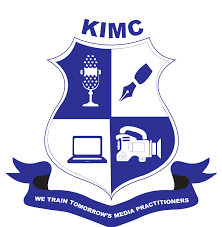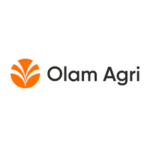
Job Title: Market Linkages Advisor
Program: Kenya Feed the Future Local Food Systems
Reports to: Regional Program Manager
Location: Regional
Grade: 7
TechnoServe Background:
TechnoServe works with enterprising people in the developing world to build competitive farms, businesses and industries. We are a nonprofit organization that develops business solutions to poverty by linking people to information, capital and markets. With more than four decades of proven results, we believe in the power of private enterprise to transform lives.
Program Overview
The Kenya Feed the Future Local Food Systems is a five-year USAID project designed to increase agricultural production and productivity, increase resilience capacities, and improve nutrition outcomes in 9 counties in Kenya – Bungoma, Busia, Garissa, Homa Bay, Isiolo, Kakamega, Makueni, Migori, and Siaya. The program will also support investments in other regions of Kenya to support the flow of food, goods, and services to the 9 focal counties and strategic corridors in the Northern ASALs.
Food systems are critical to Kenya’s economic development, as the agri-food sector contributes to more than half of the nation’s gross domestic product and employs over 70% of the rural population. Kenya’s agri-food sector has the potential to support inclusive and resilient economic growth and deliver nutritious diets to vulnerable populations. LFS will capitalize on Kenya’s economic growth and growing cities, the emergence of innovative and dynamic agri-food businesses, and the GOK’s investments in economic development to accelerate inclusive growth in the agri-food sector.
LFS supports four priority objectives, as well as a number of crosscutting objectives, to catalyze transformational changes in the food system. These include:
- Increased productivity, profitability, and diversity in the local food system
- Strengthened resilience capacity for HHs, communities, and institutions to mitigate risks and shocks in the local food system,
- Increased access to and consumption of adequate safe, nutritious food, especially by women and children
- Strengthened collaboration, iterative learning, and adaptive management for effective locally led development
LFS will use key leverage points to anchor its approach to implementation of five work streams:
- First and last mile service provision
- Entrepreneurship development
- Food and Feed Markets / Processing
- Policy Alignment and Influence
- Collaboration, learning, and adapting
The Role:
The Market Linkages Advisor will develop and oversee the implementation of the project market linkages and partnership function to address first mile and last mile delivery challenges livestock and food crop agro-intermediaries face in their input out and outbound supply chains. The Market Linkages Advisor will leverage the market systems development approach to identify and implement solutions that enable private businesses to overcome key market constraints to improve the performance and resilience of local food systems. The role holder will identify and cultivate relationships with existing and potential market actors to expand opportunities to work together, enhance growth in MSME clients; and facilitate connections to source and demand markets necessary for functional food systems.
As part of the Regional Implementation Teams, the Market Linkages Advisors will strategically select priority investment areas and dimensions for the entire range of actors (agri-intermediaries) and their interlinked value-adding activities involved in the production, aggregation, processing, distribution, consumption and disposal of food products while considering components of the broader socio-economic environment.
The Market Linkages Advisor will play a lead role in developing partners with agro-intermediaries (agro dealers, producer organizations, food processors) both upstream (with smallholder farmers) and downstream (with end-consumers).
The Market Linkages Advisors may have one or more direct report(s). A key success measure for this position is quantifiable improvements in first and last mile delivery business models which ultimately result in improved access and affordability of safe and nutritious food in a resilient food system.
Key Roles and Responsibilities:
Identification of critical agri-intermediaries in the local food systems through systems analysis and strategy development
- Identify key constraints, bottlenecks, and opportunities along the value chains that limit the efficient and reliable delivery of products to consumers.
- Work closely with the Regional Implementation teams and Technical Integration teams to identify business and market opportunities within the local value chains
- Work with the Technical Integration team and grants team to design annual program statements and RFAs to source agri-intermediaries that are, or could be, providing critical functions in the market system
- Design innovative, market-based approaches that engage private sector actors (e.g., logistics companies, technology providers, financial institutions) to improve first mile and last mile delivery.
- Ensure the strategy is consistently aligned with the program’s overall objectives and contributes to the enhanced performance of local food systems.
Inclusive Business Plan (IBP) and Inclusive Marketing Plan development
- Lead the development of IBPs/IMPs, by conducting research and analysis into agribusiness operating models, to identify existing challenges and opportunities, and design commercial models for greater support to smallholder farmers (e.g. training delivery, communications, credit finance etc)
- Identify potential capacity gaps within agribusiness management team and propose areas of training and support
- Present ideas and opportunities to agribusiness management and incorporate their feedback to develop commercially viable solutions
- Manage Technoserve fellows and third party consultants supporting delivery of IBPs (provide strategic direction, provide commercial and technical quality control of their output, and support in communicating the solution to key stakeholders)
- Manage IBP/IMP operations effectively (recruitment, timeline, budget, compliance)
Multi-stakeholder dialogues, Business-to-Business Forums, Networking, Market Linkages
- Establish and maintain strong partnerships with key stakeholders, including local government agencies, private sector entities, and community organizations that constitute local food system actors – at the national and county levels.
- Facilitate multi-stakeholder dialogues and workshops to foster collaboration, align interests, and develop coordinated food system investment action plans.
- Work with sector associations, and using market information, co-design business-to-business forums that bring together upstream and downstream actors, with an emphasis on developing new contracting or partnership agreements for the purchase of raw or final commodities
Partnership Strategy, Origination and Investment Mobilization (pipeline development)
- Support the development of the LFS grants investment strategy to catalyze innovative solutions and incentivize private sector participation in enhancing the local food system.
- Contribute to the LFS’ grants program, including the support in the development of application processes, selection criteria, and monitoring and evaluation frameworks.
- Working with the regional teams, mobilize additional investment from the private sector, financial institutions, and other development partners to scale up successful interventions.
- With support of relevant technical leads and region implementation teams, coordinate provision of technical assistance (TA) to partners.
Monitoring, Evaluation, and Learning
- Contribute to the implementation of the program’s monitoring and evaluation mechanisms to track the performance and impact of the program’s interventions specifically drawn from agro-intermediaries.
- Analyze data, document lessons learned, and identify best practices to inform the ongoing adaptation and improvement of the performance measurement and tracking strategy.
- Actively share knowledge and insights with the broader food systems development community to contribute to the global evidence base.
- Produce monthly and quarterly agro-intermediary summary progress reports and for each individual grant that is under implementation.
Additional tasks that may be assigned in an agile program implementation approach.
Desired Qualifications And Experience
- Preferably a Master´s degree in agribusiness, agricultural economics, business administration, or a related field, with about 3-5 years of related experience or a Bachelor’s degree and 5 years plus experience in a related field.
- Relevant experience in agribusiness development, market systems, or value chain strengthening, preferably in the East African context
- Experience with USAID investment mechanisms or private sector investment modeling and stakeholder engagement an added advantage.
- Strong understanding of the Kenyan agricultural sector and food systems, including the key actors, constraints, and opportunities
- Demonstrated expertise in designing and implementing market-based approaches to address first mile and last mile delivery challenges
- Excellent stakeholder engagement, facilitation, and communication skills
- Experience in programs with grant or commercial investment mechanisms, and mobilizing private sector investment
- Proficient in data analysis, monitoring, and evaluation
- Strong compliance skill and attention to detail, with minimal supervision, able to prioritize and manage a high volume work flow.
- Excellent written and verbal communication skills and relevant computer software skills with proficiency in Microsoft Office (Excel and Word).
- Fluency in English; proficiency in Swahili is an advantage
- Willingness to travel extensively within Kenya
- The successful candidate will have a strong commitment to personal integrity.







